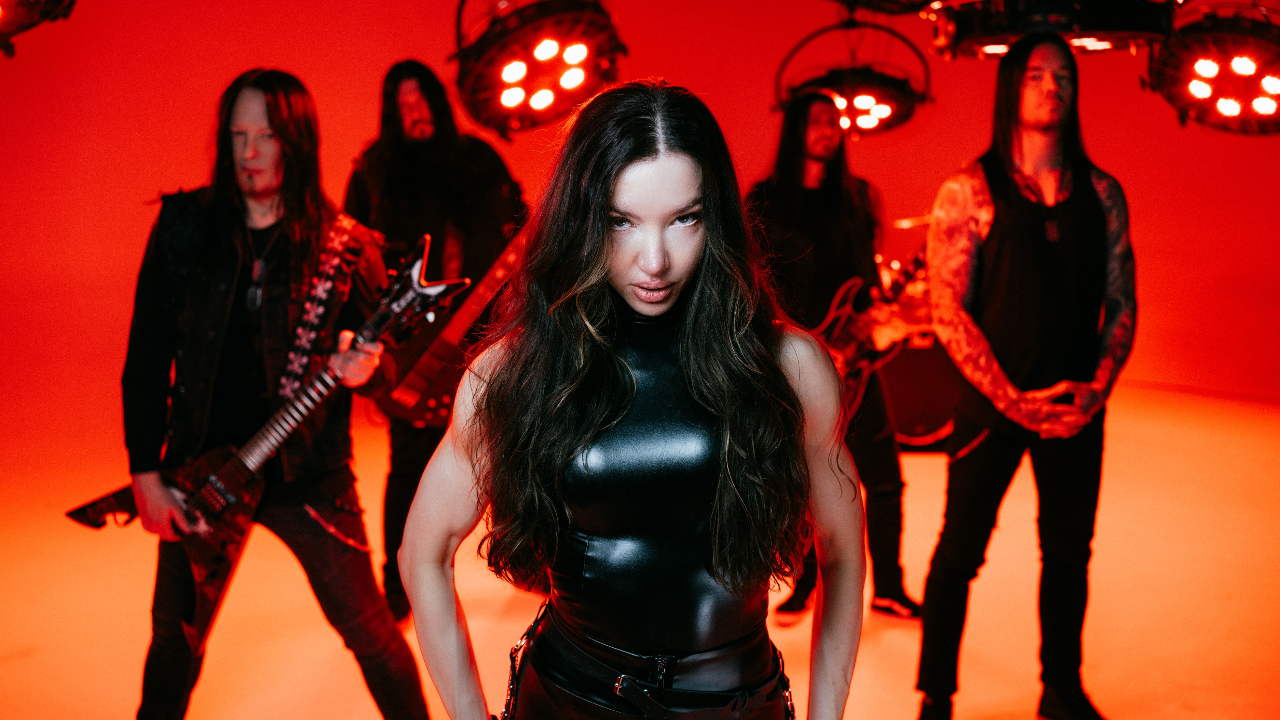'He was the wild life of the party' - Vinnie Paul remembers Dimebag Darrell
On the anniversary of Dimebag Darrell's death, we look back on when his brother, the late Vinnie Paul talked about their childhood, Pantera and the very last words they exchanged before the shooting
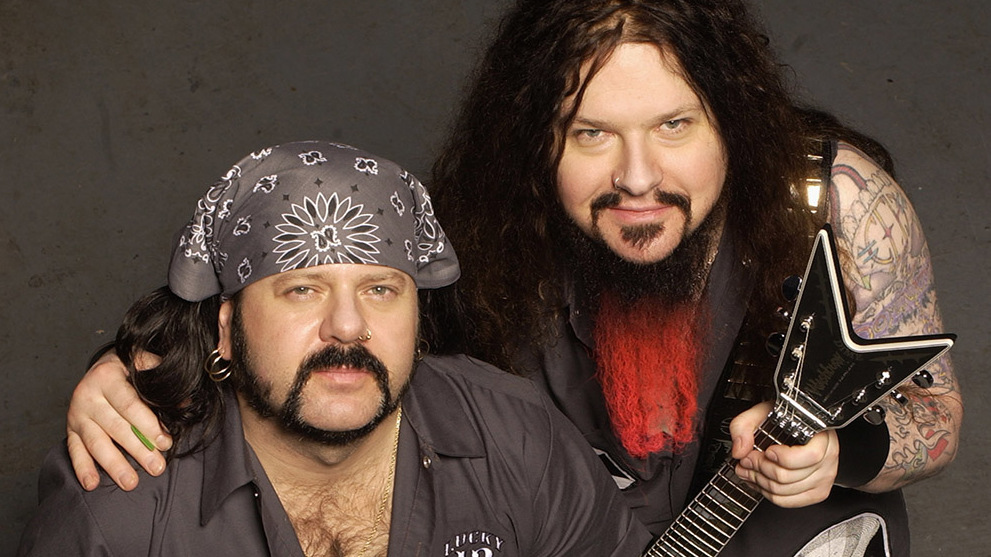
Select the newsletters you’d like to receive. Then, add your email to sign up.
You are now subscribed
Your newsletter sign-up was successful
Want to add more newsletters?

Every Friday
Louder
Louder’s weekly newsletter is jam-packed with the team’s personal highlights from the last seven days, including features, breaking news, reviews and tons of juicy exclusives from the world of alternative music.

Every Friday
Classic Rock
The Classic Rock newsletter is an essential read for the discerning rock fan. Every week we bring you the news, reviews and the very best features and interviews from our extensive archive. Written by rock fans for rock fans.

Every Friday
Metal Hammer
For the last four decades Metal Hammer has been the world’s greatest metal magazine. Created by metalheads for metalheads, ‘Hammer takes you behind the scenes, closer to the action, and nearer to the bands that you love the most.

Every Friday
Prog
The Prog newsletter brings you the very best of Prog Magazine and our website, every Friday. We'll deliver you the very latest news from the Prog universe, informative features and archive material from Prog’s impressive vault.
At what age did the pair of you become interested in music?
“It’s kind of the old Eddie and Alex Van Halen story. We both started playing drums when I was 14 and he was two years younger than me. I just got better than him and wouldn’t let him play them anymore. So he told our dad, ‘I gotta have an instrument to play - get me a guitar!’ I would go past his room and he’d be stood in front of his mirror with his Ace Frehley make-up on, holding his guitar. I’d say, ‘Man, are you ever gonna learn to play that thing?’ A month later he asked me to jam: he hooked up and he had his little amp and his replica of a Les Paul that Ace Frehley used to play - Ace was a major influence when he was a kid - and started riffing Smoke On The Water. We played it for, like, six hours. Once we started on music we were inseparable. We thrived on music and learned as much as we could and couldn’t wait to get together and play.”
What got you into music?
“The first record I ever owned was Kiss’ Alive. After I discovered that it was Van Halen, and then Cat Scratch Fever by Ted Nugent, and then I was hooked on the music. I’d already started playing the drums. My dad was a musician, which was no bad thing - it was always around the house. It all started from that point when I was 14.”
And it was a bond that lasted right until the end, wasn’t it?
“Oh yes. It’s incredible. We had the greatest chemistry in the world. We always knew where each other was going, especially musically. Loads of kids when they’re growing up get a lot of pressure from their parents about getting good grades and stuff. We worked together and never felt that competition that other kids do.”
What are your earliest memories of Dimebag?
Sign up below to get the latest from Metal Hammer, plus exclusive special offers, direct to your inbox!
“It’d have to be when he really got serious about playing the guitar. From that point on he didn’t care about school or anything. We went to concerts together constantly. We were playing nightclubs in the band when he was only 15 years old. My dad used to have to come and sneak him in.”
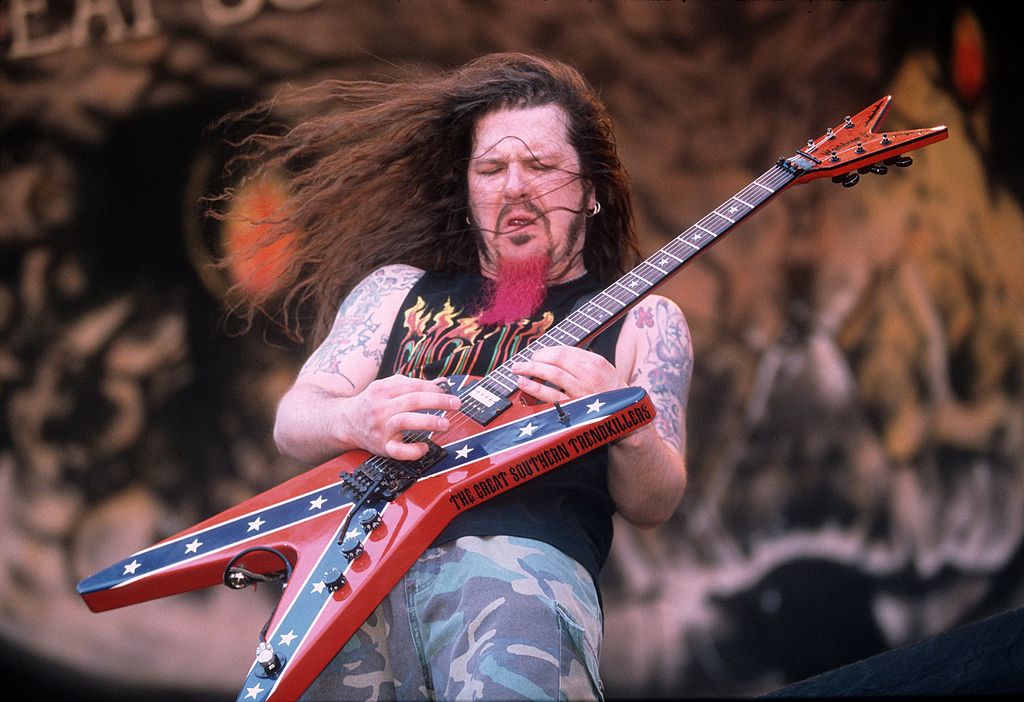
Before you bonded over music, what was Dimebag like? Was he just your average annoying little brother?
“I was a little bit bigger than him at the time and when I used to play football he wanted to play. He’d try but he was smaller and it didn’t really work. Once we both got to music the unbreakable bond really began.”
Your father is Jerry Abbot, the country music songwriter and producer. Did that make it easier for you to explore your creativity rather than have a parent who was anti-music or anti-rock?
“Yes, and especially for Dime too. My mom and dad separated when he was 14 and every Wednesday and Thursday he would go to my dad’s house and he would pock one or two songs that we wanted to learn as a band and my dad would pick the notes out and teach them to Dime. Eventually he could pick them out on his own but it really helped him out. My dad was definitely an influence on him in the early days.”
It seems he was a natural.
“Yeah, he picked it up really quick. He was a 100 per cent natural, but at the same time he worked really hard to hone his skills and talent. He spent lots of time trying to come up with new ideas and different stuff people hadn’t heard. Or just digging into his roots and learning new styles. I’d never heard him play like classical or flamenco, just to try to broaden his spectrum.”
There seems to have been a general love of music between the two of you, not bowing to peer pressure which is somewhat prevalent in the metal world.
“For me and him, we were always fans of of music. And I still am today. In the metal world, it’s like, if you like speed metal, then people who like 80s hair metal are gay. We just liked everything as long as it had talent and heart. Dime loved everyone from Blues Saraceno to Eddie Van Halen to Mick Mars - all kinds of different guitar players and he really wasn’t afraid to speak his mind.”
Dimebag wasn’t only a phenomenal guitar player. He was also known as someone who very much enjoyed living life.
“He loved to entertain people and loved to put a smile on people’s faces and he didn’t care how he did it. Whether it was with his guitar, doing a picture backstage with some fans, signing some autographs or just being himself and hanging out being the life and soul of the party.”
Was he always like that as a child?
“Yes, it there was a party to be had he was always the first one grabbing the bottle and firing it up. People expected Dimebag Darrell to be the crazy motherfucker off the Pantera videos, and he didn’t want to let them down. But at the same time, he also needed what he referred to as his ‘Dime Time’ - just to chill.
Were you both like that, or was Dimebag much more the party animal?
“He was the wild life of the party and I was the business guy who had to keep everything together. It was a team that really worked.”
Where did the name ‘Dimebag’ come from?
“Hmmm, there’s been so many different recollections…”
Most people have heard the one about the bag of weed….
“Yeah, that’s basically where it came from. He didn’t delve into anything other than that. And the truth of the matter is the term ‘nickel bag’ used to be kind of a regular thing and he just put his own twist on it; ‘I’m gonna get me a dime bag’ and it just stuck. He used to call me ‘Vinnie Paul The Brick Wall’ and to this day I’ve got ‘Brick Wall’ on half my clothes. We always had nicknames for each other and all the people that are part of what we’ve done. It’s just one of those things - anyone who ever came into contact with Dime and were more than an acquaintance, he always had a nickname for them.”
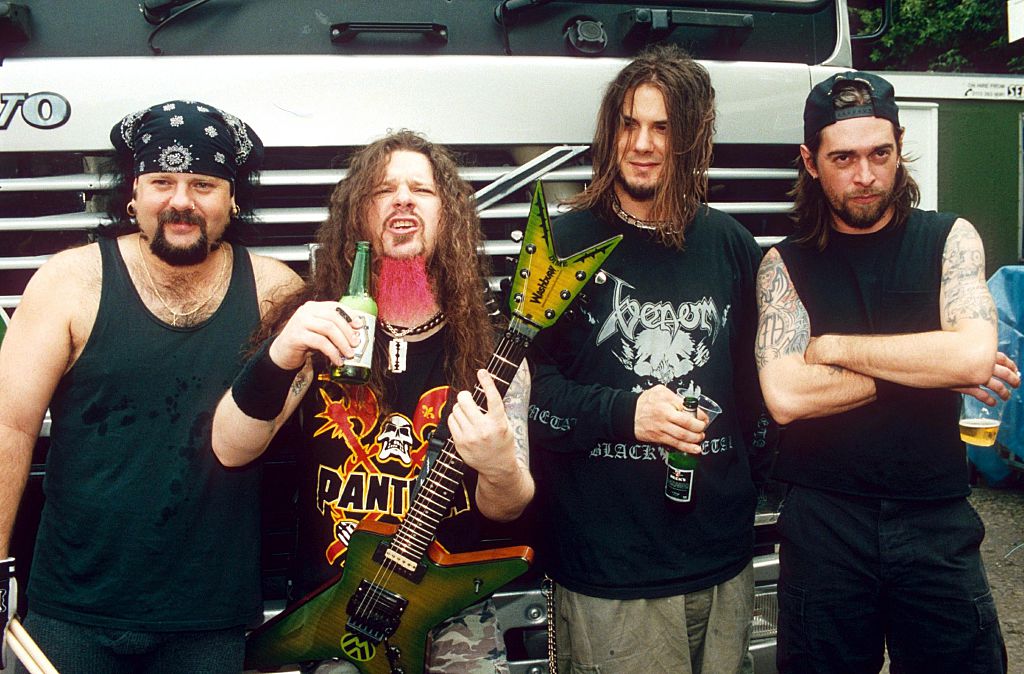
When Pantera first rose to prominence in the 80s he was known as ‘Diamond Darrell’.
“I guess that was just the first moniker given to him. People would say, ‘Oh, there goes Diamond Darrell’ and he just took the Diamond thing and turned it into his own with the Dimebag thing - he just put a little twist on the thing and made it his own.”
It must have been great for you, not only for yourself to taste that kind of success, but to see your younger brother come into his own.
“I always thought he was super-special and I was so proud of every time we ever played anywhere. Brian May [Queen] would bring his son to see us play live. There were just to many great players who admired what he did. It was really special to play with him and it’s something that I’ll never feel again. But it was the most beautiful thing in the world. He really was special and one of a kind. And he was all about metal - he loved everything about it and he was wild too.”
Do you think he gets the recognition he deserves? That people were too quick to merely see him as Dimebag the party animal and not the talented guitarist?
“No, he knew those things went hand in hand. He knew he was the life of the party and a character and that kind of came along with everything that he did. That was okay with him and okay with us.”
- Dimebag track on Hellyeah album was goosebump moment - Vinnie Paul
- Phil Anselmo tells boy what he’d say to Dimebag if he could
- Dimebag: The Life And Soul
- Vinnie Paul takes aim at 'show-off' drummers
Did the pair of you turn to each other for support when Phil Anselmo started encountering his various problems whilst in Pantera?
“Oh yeah, we spoke to each other about it all the time. We’d made several attempts to reach out to Phil. In the end, we felt it had gone too far and we really needed to do something. I remember Dime had made some demos, and Jerry Cantrell was over. We were just hanging out, pretty depressed. Dime took Jerry out in the car and played him the demos - which later became Damageplan - and Jerry said, ‘You need to move on and do your own thing.’ Dime came back into the house and said, ‘Fuck this shit, we’re not waiting around anymore. Let’s just start our own band and do our own thing. And that’s how Damageplan came about.”
Much has been made of the interview Phil did with Metal Hammer in 2004, just prior to Dimebag’s tragic death, to the extend that you actually requested a tape of that interview to confirm its veracity, which we supplied. Since then, Phil has said a lot online and in the press about wanting to make amends. Has he ever tried to make contact with you? [In the interest of balance, Hammer wishes to point out that on October 3, 2007, Phil Anselmo stated via a blog posting: ‘I think of Darrell every day. He comes up in conversation constantly, and it always puts a smile on everyone’s face. There was only ONE Darrell, none better before nor after.’]
“No man, I don’t want to talk to to him. I don’t believe anything he says. He’s the master of lies. He says that shit because he wants the fans to believe what he has to say and follow what he does. And they’re like sheep and they will. I don’t want to elaborate on it any further apart to say: listen to the Metal Hammer interview and you’ll know exactly how he felt about my brother. He can say anything he wants now on the backside.”
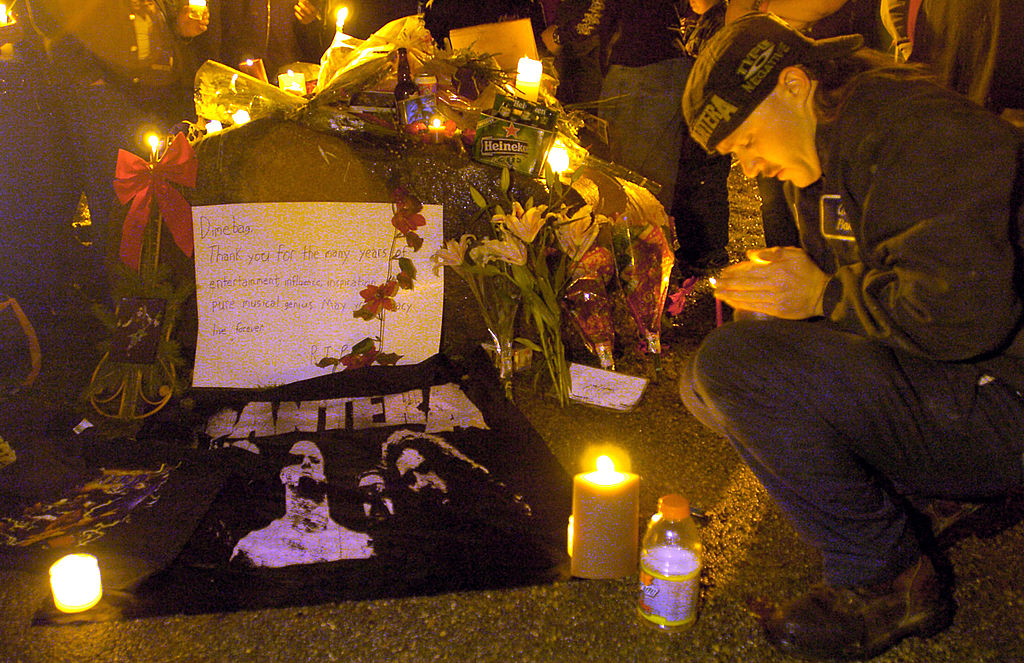
This is obviously a very sensitive subject, and I hope you don’t mind me asking the question, and you don’t have to answer this if you don’t want to, but what memories do you have of that tragic night?
“Ah, man, the last thing that really matters to me is the last thing we said to each other before we went on stage. We were warming up on the side of the stage like we always did and we were both really excited - we on;y had two shows left and we were gonna be going home for Christmas and to begin work on the second record. Our code word to let it all hang out and have a good time was ‘Van Halen’, man! And that’s the last two words we ever said to each other. I said, ‘Van Halen’ and he said ‘Van Halen’ and we high-fived each other and went on the deck to do our thing… and a minute-and-a-half later I’ll never see him again.”
The response, which continues to this very day, was such that it shows how highly he was regarded by the metal community and beyond.
“He was really loved and he lives on, through his music and through his spirit. And I’m so proud to have been a part of everything that he ever did. He’s up there with Jimi Hendrix and the Bon Scotts.”
He made so many friends, from both bands and your fans. What was it about him that you think made it so easy for people to connect with him and vice versa?
“He wasn’t a phoney. He didn’t have to be somebody else - he felt comfortable being himself.”
To end on a lighter note, what’s the one story about your brother that always puts a smile on your face?
“I wouldn’t point to any one particular event - I would just say he always believed in positive things, in finding a resolution. When things get tough and difficult for me, I think there’s no way Dime would let me slip here, he would just say, ‘Man, here’s the way around this.’ Scott Ian says it best; he says that when things get tough he always thinks, ‘What would Dime do?’ You know, WWDD. It helps him too. Other people should remember that too.”
This article originally appeared in Metal Hammer issue 174
- - - - - -
The Pantera Quiz: how well do you know Vulgar Display of Power?
Writer and broadcaster Jerry Ewing is the Editor of Prog Magazine which he founded for Future Publishing in 2009. He grew up in Sydney and began his writing career in London for Metal Forces magazine in 1989. He has since written for Metal Hammer, Maxim, Vox, Stuff and Bizarre magazines, among others. He created and edited Classic Rock Magazine for Dennis Publishing in 1998 and is the author of a variety of books on both music and sport, including Wonderous Stories; A Journey Through The Landscape Of Progressive Rock.

